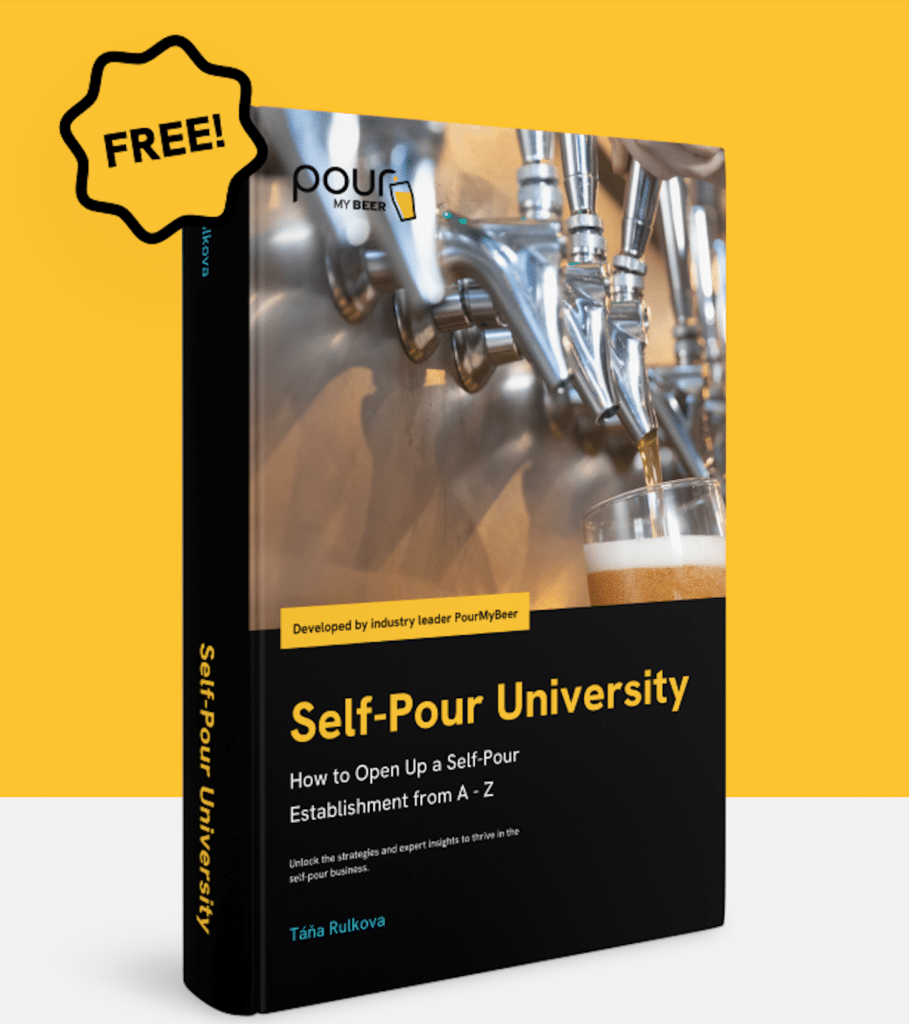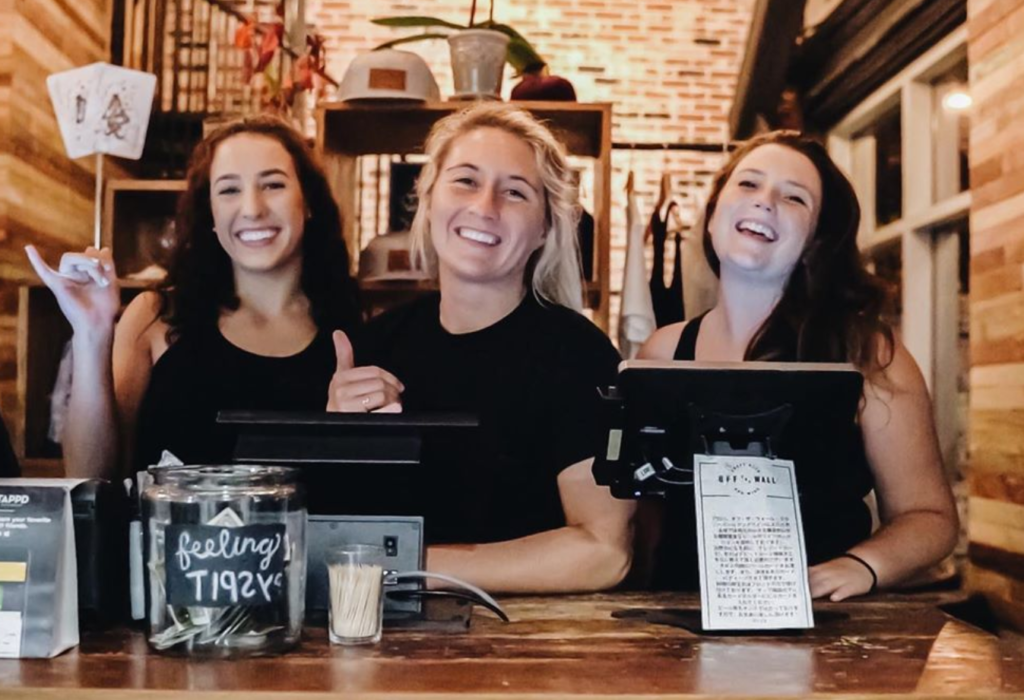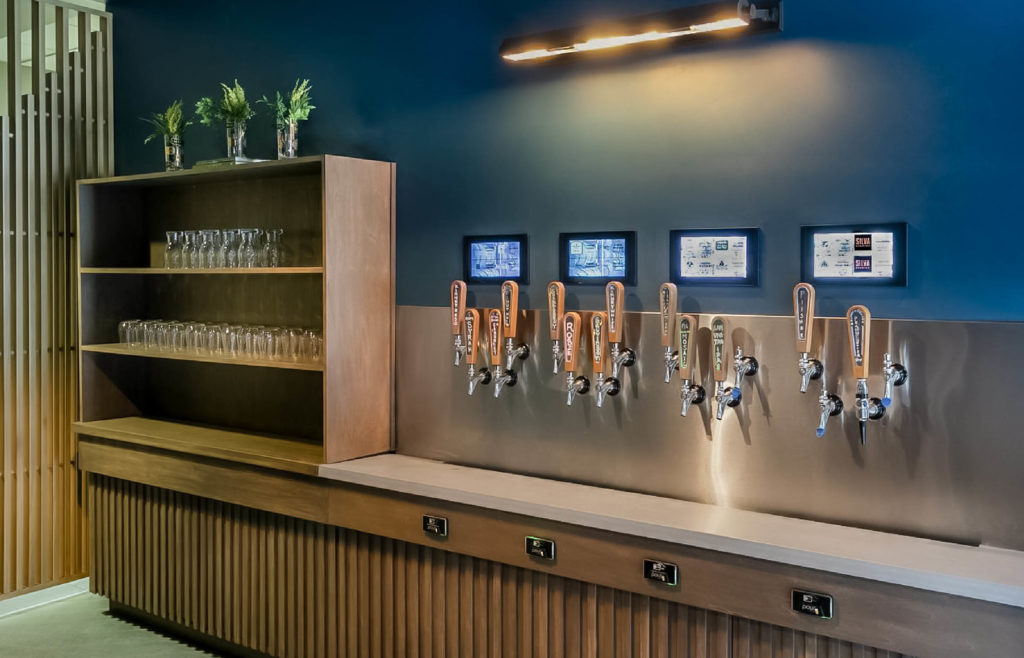In 2020, with the onslaught of pandemic hardships mounting, food and beverage businesses looked for any way to keep their business afloat. SBA loans, the Paycheck Protection Program, and the Restaurant Revitalization Fund via the American Rescue Plan Act offered ways for businesses to keep the lights on and workers employed. Four years later, bars and restaurants have largely recovered, but the industry has fundamentally changed and pressures continue to amount.
Facing continued challenges post-pandemic, food and beverage businesses may have another saving grace. If passed, The CHEERS Act would be a financial lifeline for new bar and restaurant businesses nationwide. And it comes from another pandemic-era hero: technology.
The pandemic exacerbated the adoption of new technologies in food and beverage businesses. Their need for solutions, such as online ordering, helped usher in a new era for food and beverage tech and saw the proliferation and eventual consolidation of dozens of companies and solutions vying to win in their respective industries. And now, new technology is at the heart of the CHEERS Act. Let’s take a look at what it is, how it aims to help small businesses, and how sustainability is at the heart of the matter.
“The CHEERS Act would give restaurant and bar owners new tools to innovate how they serve beer to customers. The result would be more consumer choice, strengthened sustainability options, and needed support for restaurant owners in every neighborhood.”
Sean Kennedy, Executive Vice President for Public Affairs, National Restaurant Association
A Financial Boost from the CHEERS Act
The Creating Hospitality Economic Enhancement for Restaurants and Servers (CHEERS) Act, a bipartisan effort introduced by Congressmen Darrin LaHood and Steve Horsford, is making waves by extending tax incentives for reusable steel kegs and draft beer systems, recognizing their vital role in bars and restaurants.
In short, this bipartisan bill will support local bar and restaurant establishments by incentivizing the expansion of tap lines and keg equipment on commercial premises. Even more, the act would help these businesses by extending accelerated tax benefits for qualifying investments into energy-efficient systems, a nod to the act’s commitment to more sustainable industry solutions. The impact, if enacted, would be significant.
Sean Kennedy, Executive Vice President for Public Affairs of the National Restaurant Association (NRA), speaks to the positive impact it will have on American food and beverage industry operators, telling the Steel Keg Association (SKA), “The CHEERS Act would give restaurant and bar owners new tools to innovate how they serve beer to customers. The result would be more consumer choice, strengthened sustainability options, and needed support for restaurant owners in every neighborhood.”
The act is a game changer, offering pubs, restaurants, and breweries the financial boost they need by recognizing the importance of draft systems for their businesses. This legislation is a testament to the industry’s resilience and the government’s commitment and support for industry growth and sustainability.
The CHEERS Act Not Only Helps Businesses, It 's a Move Toward a More Sustainable Future
Sustainability is at the heart of the CHEERS Act. According to a 2022 census by the Alcohol and Tobacco Tax and Trade Bureau (TTB) and National Beer Wholesalers Association (NBWA) Industry Affairs, eight percent of the total volume of on-premise beer sales nationwide in 2021 was attributed to draft (keg beer). That suggests a large percentage of sales across bars, restaurants, hotels, stadiums, and event venues resulted in a canned or bottled product. While generally recyclable, canned and bottled products present a problem for sustainability initiatives.
A study by Reloop, an international non-profit organization that brings together industry, government and NGOs, states that more than 140 billion empty drink containers—glass bottles, PET plastic bottles, and metal cans—were wasted across the United States in 2019. Additionally, data from the U.S. Environmental Protection Agency (EPA) shows the low recycling rates for some key beverage containers, including glass beer and soft drink bottles (39.6 percent), glass wine and liquor bottles (39.8 percent), and aluminum beer and soft drink cans (50.4 percent). These low percentages prove there is ample need for change.
Generally, glass is 100 percent infinitely recyclable, meaning it can be broken down and reformed continuously. Because of that, some states have enacted bottle bills, (or container deposit laws) that result in much higher material recovery rates, benefitting the state’s ecosystem by reducing litter, and supporting the recycling industry with a continuous stream of recyclable material.
Based on the Reloop study findings, 10 states have implemented container deposit laws. Among them, Oregon and Michigan boast the most effective deposit return systems, rivaling the efficiency of contemporary European models. Michigan achieved an impressive 90 percent return rate, while the Oregon Beverage Recycling Cooperative, responsible for managing the majority of containers in Oregon, achieved a remarkable 90.8 percent return rate in 2019. Reloop suggests that if there were to be a 90 percent return rate nationwide, similar to Michigan and Oregon, the shift could decrease annual wastage of beverage containers from 140 billion to slightly over 22 billion.
The plausibility of a nationwide return rate that is high in the near future is low. But there are alternative ways that bar and restaurant businesses that don’t offer draft can reduce waste and implement systems that fall in line with the CHEERS Act.
The Sustainability Side of Self-Pour Tech

Enter self-pour solutions. By minimizing waste, offering precise control, and encouraging eco-friendly practices, self-pour solutions like PourMyBeer, are setting new standards for the industry’s future. Bars and restaurants that integrate with this technology reap the benefits of increased profits and decreased labor costs. They also contribute to a vastly more sustainable future, employing draft systems that eliminate the use of aluminum or glass bottle waste in everyday operations.
PourMyBeer Customer’s Annual Environmental Impact
PourMyBeer’s commitment to sustainability is demonstrated by our significant contributions to reducing waste and carbon emissions. By eliminating the need for millions of disposable cans and bottles, we’ve made a positive environmental impact that extends beyond the venues we serve. Download PourMyBeer’s 2023 Self-Pour Impact Report here to learn data and key insights into self-pour technology.
2022 Achievements:
- 75.3 million ounces of beer poured = 6.27 million aluminum cans saved.
- 6.2 million ounces of wine poured = 244 thousand bottles of wine saved.
- Total CO2 emissions offset: 1,202.8 metric tons
2023 Achievements:
- 107.8 million ounces of beer poured = 8.98 million aluminum cans saved.
- 8.8 million ounces of wine poured = 346 thousand bottles of wine saved.
- Total CO2 emissions offset: 2,038.5 metric tons.
2023 Self-Pour Impact Report
Benefits of Pairing the CHEERS Act with PourMyBeer
PourMyBeer, a pioneer in self-pour technology, enhances the customer experience with its efficient serving solutions. This innovation is not just about ease and speed, it’s a step towards safer, personalized drinking experiences, giving customers control and offering businesses a treasure trove of data for better service.
Pairing PourMyBeer with the CHEERS Act creates a powerful combo for businesses, simplifying compliance and encouraging upgrades for more environmentally sound dispensing systems. This synergy is a catalyst for growth and sustainability, promising a bright future for the hospitality industry.
Looking Ahead Toward a More Sustainable Industry with The Cheers Act and Self-Pour Technology
The CHEERS Act and self-pour tech are leading the hospitality industry into a new era of prosperity. This is a time for innovation, embracing new solutions that cater to a wide array of beverages, beyond just beer.
We’re standing at a pivotal moment, ready to redefine what dining and drinking establishments can offer. With the CHEERS Act and self-pour technology, we’re not just looking at recovery, we’re stepping into a future where sustainability, efficiency, and customer satisfaction lead the way. Here’s to a thriving hospitality industry, powered by innovation and legislative support. You can track the CHEERS Act’s progress here.








